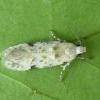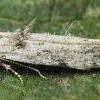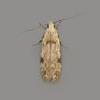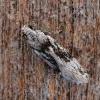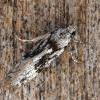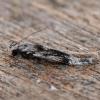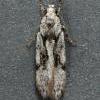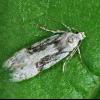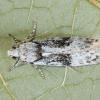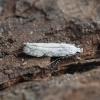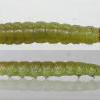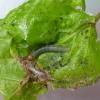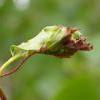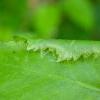35.149 Carpatolechia alburnella (Zeller, 1839)
Status and Distribution
Local in southern and central England, northwards to south Cumbria and North Yorkshire, very local in the Highlands of Scotland where it is represented by an attractive black and white form found in East Inverness-shire, Moray and South Aberdeenshire. Rare in Wales with a few mid-twentieth century records from North Wales only. Apparently absent from the the rest of Scotland, the rest of Wales, south-west England, Ireland, Isle of Man and the Channel Islands.
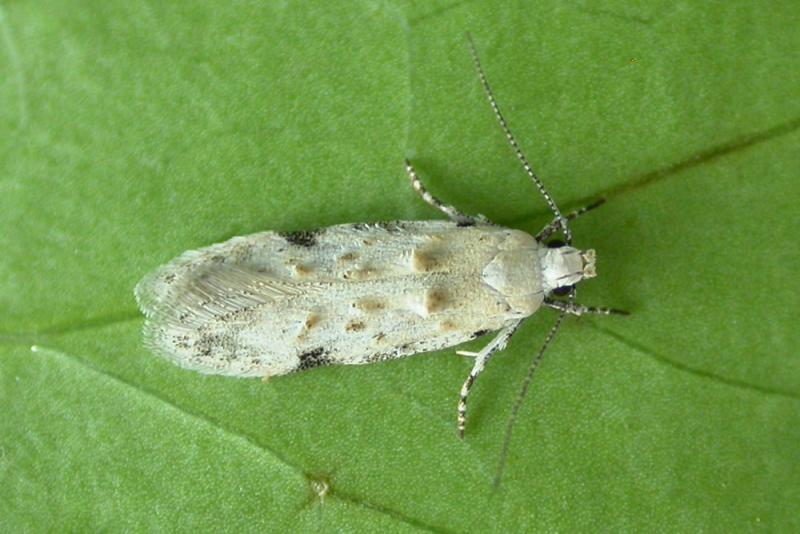
Provisional map
Imago
Pupa
Habitat
Woodland, parks, scrubland and heath.
Finding the Moth
Larva: between spun or folded leaves; in Europe reported feeding under a leaf edge.
Adult: rests on birch trunks during the day generally in crevices on rough bark, and flies at night and is attracted to light.
Similar Species
Carpatolechia alburnella is best distinguished from whitish or weakly-marked C. proximella and C. decorella by the presence of an all-white segment two of the labial palps. This segment is whitish with extensive fuscous speckling in C. proximella and fuscous in C. decorella.
In the Scotland highlands, C. alburnella appears in a form (which the European literature names ab. radiella) with a broad blackish streak extending across the centre of the forewing from one-fifth to about two-thirds and with dark fuscous extensions from the base of the streak to the dorsum (trailing edge) and from the outer end to the costa (leading edge). The second segment of the palps is also white in this form.
Single brooded from mid-June to mid-August.
Earliest: 17th May 2007 (VC12)
Latest: 7th September 2006 (VC58), and an exceptionally late record on 17th September 2006 (VC37)

